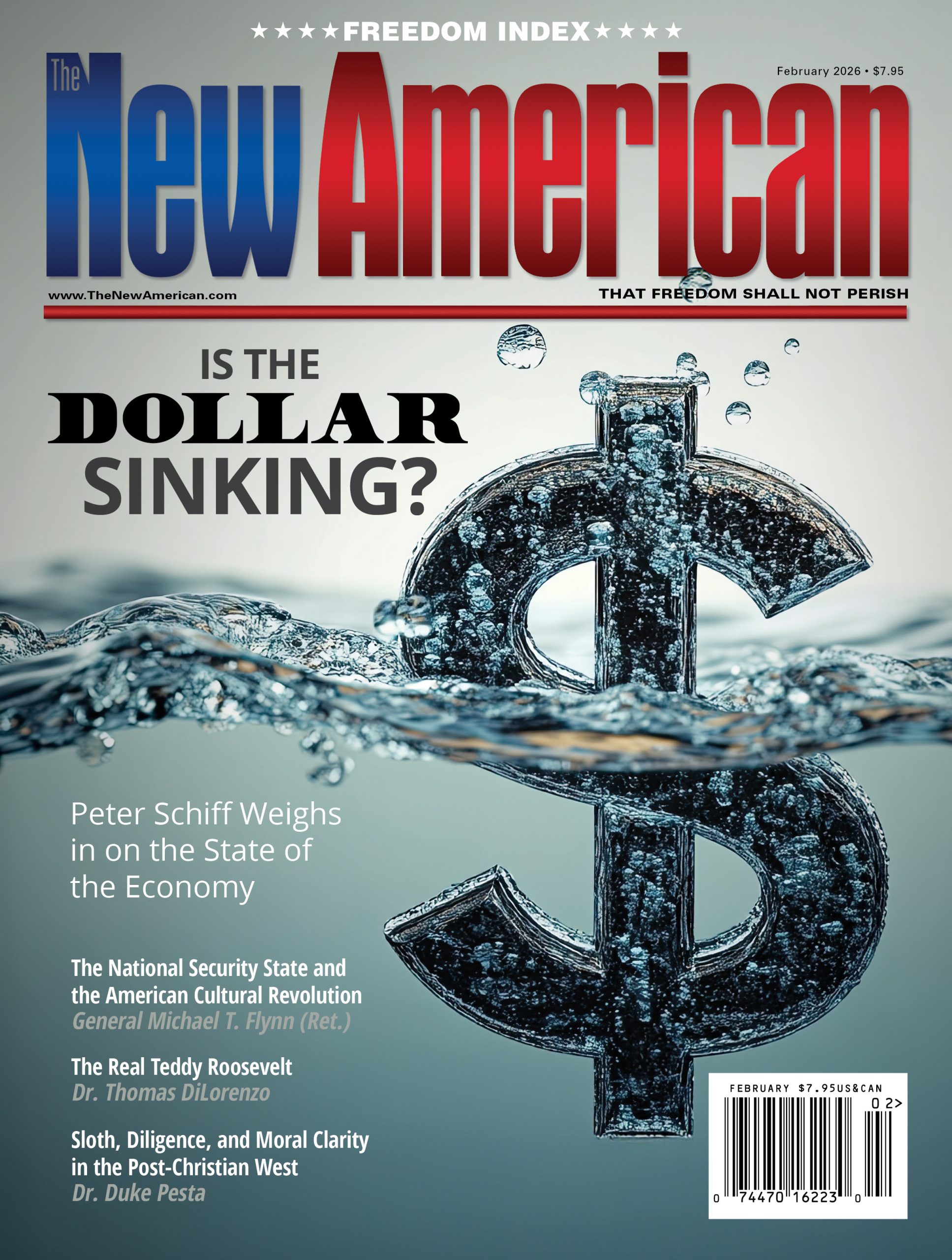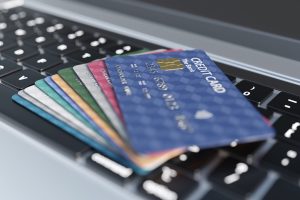
The Emerging Global Fed
The Federal Reserve has been a nightmare for the American people. It inflates the money supply, thereby devaluing already-existing money and placing a massive hidden tax on the people via rising prices. It also uses its monopoly power to cause interest rates to go up or down, usurping the rightful place of the market and causing massive malinvestment and generally an improper and unproductive allocation of resources.
The Fed also causes the boom-and-bust cycle through its manipulations of the currency and credit supply. It serves as the government’s partner in perpetually expanding the “welfare-warfare state,” allowing the state to spend far more than it could ever hope to reasonably raise through direct taxation. And of course, the fact that all Federal Reserve notes enter the economy as debt with interest attached (but never created) has led to a situation where it is literally mathematically impossible to pay off the debt. In sum, the consequences of such a system have been disastrous for average Americans — hence the growing calls to audit and even end the Fed.
But now, imagine such a system at the global level. And it isn’t just a mental exercise; the global central bank is already emerging. As bad as the Fed has been for America — and indeed the world — a similar system at the international level would be far worse. Disaster might even be an understatement.
International Liquidity and Inflation
One of the most serious threats posed by a global central bank and world fiat currency is the fact that it would allow the emerging planetary regime to print its own money and finance its activities independently. That means wealth could be secretly siphoned away from all of humanity to pay for armies, tax collectors, courts, bureaucracies, law enforcement, wealth redistribution, propaganda, and much more. With no limits. But to advocates of such a system, that is one of its primary benefits.
“A super-sovereign reserve currency not only eliminates the inherent risks of credit-based sovereign currency, but also makes it possible to manage global liquidity. A super-sovereign reserve currency managed by a global institution could be used to both create and control the global liquidity,” wrote Chinese central-bank boss Zhou Xiaochuan in his public paper calling for a world currency. “The centralized management of its member countries’ reserves by the Fund will be an effective measure to promote a greater role of the SDR [Special Drawing Rights, the International Monetary Fund’s first effort at a world currency] as a reserve currency.” Of course, communists have always supported control of “liquidity” (Karl Marx was a strong advocate of central banks with a monopoly on currency and credit). But to people who care about freedom and prosperity, the communists’ support should be a huge red flag.
The United Nations has also backed global currency proposals for the same reason. In a report earlier this year calling for the end of the dollar’s status as a reserve currency and a new monetary regime controlled by the International Monetary Fund, the UN’s World Economic and Social Survey for 2010 points out that, “Such emissions of international liquidity could also underpin the financing of investment in long-term sustainable development.” The term “sustainable development” — especially when used by the UN — is often used to refer to stronger central planning, population reduction, more land in government hands, and other ideas repugnant to average Americans and the U.S. Constitution. Other schemes for “international liquidity” could be even worse.
Hiding behind the passive voice, a separate report by the UN Conference on Trade and Development adds in the concept of wealth redistribution: “It has been suggested that in order for the SDR to become the main form of international liquidity and means of reserve holding, new SDR allocations should be made according to the needs of countries.” It then promotes worldwide central planning to “stabilize global output growth” by issuing more SDRs or retiring them as the emerging global government deems necessary. As it stands, wealth redistribution around the world is bad enough. Surrendering that power to a global institution would be a nightmare.
In its report published earlier this year, the IMF also recently came out in favor of allowing it to print its own money to provide “international liquidity.” “A global currency, bancor, issued by a global central bank would be designed as a stable store of value that is not tied exclusively to the conditions of any particular economy,” the paper says. “The global central bank could serve as a lender of last resort, providing needed systemic liquidity in the event of adverse shocks and more automatically than at present.” In laymen’s terms, the IMF, with its power to “emit liquidity” out of thin air, would be empowered to “bail out” companies, governments, and whomever it wished. If you thought the Fed handing out trillions of dollars to the big banks and other insiders was bad, just wait until a global central bank exercises that power.
Allowing the emerging global government to supply its own money would free it from the constraints of having to raise money through national contributions or direct international taxation. But of course, printing all of this new “liquidity” and financing all of its ambitious projects would be inflationary by definition. And this inevitably would represent a massive problem.
Even John Maynard Keynes, the original proponent of the world currency called “bancor,” understood the concept well. In 1919, he wrote in his book The Economic Consequences of the Peace, “By a continuous process of inflation, governments can confiscate, secretly and unobserved, an important part of the wealth of their citizens.”
To understand the effects, one can look to history and examine examples such as what occurred in the Weimar Republic of Germany, where the money supply was inflated to such an extent, to finance government spending and war debt, that Germans actually found their money more valuable to burn as fuel than to use to purchase items. Or, in more recent years, the tragedy of hyperinflation in Zimbabwe, where inflation exceeded millions of percent per year and it could cost a person billions of dollars for a loaf of bread, provides a more current warning. Even in America — with a comparably stable currency up until now — inflation has wreaked havoc on the economy and the lives of citizens, as we have become a country where husbands and wives must both work to make ends meet. And these all happened in a world where there was still a check on unlimited inflation of fiat money — the fact that citizens could quit using it and purchase other currencies that were not losing their value as quickly. But under a global fiat monetary regime, there would be no such option.
Economists who have been proven correct over the decades about the economic consequences of creating money out of thin air are already sounding the alarm. “A world paper currency and world central bank would heighten the moral hazard and lead to a global inflationary regime such as we’ve never seen,” noted Lew Rockwell, the chairman of the Ludwig von Mises Institute. That is, the “easy” money and credit would cause people to borrow and spend way beyond their means, creating an unprecedented global bubble that would at some point inevitably burst. “There would be no escape from political control at that point.”
And the consequences would be dire. “Inflation tears apart the whole fabric of stable economic relationships,” explained the legendary free-market economist Henry Hazlitt. “It leads men to demand totalitarian controls. It ends invariably in bitter disillusion and collapse.”
Closer Integration and Total Control
Existing monetary unions are often seen as the model for a global currency by advocates of such a system. But surrendering control over money to supranational institutions has consequences, as the people of the Eurozone are discovering. For one, according to data compiled by the European Central Bank, economic growth has slowed dramatically in countries using the euro since the introduction of that single currency — a phenomenon not observed in other areas of the world.
But more importantly, the goal of keeping the monetary union intact is leading to ever greater fiscal and political integration as rules are harmonized and authority continues shifting from nations toward European institutions. During the height of the crisis in Greece, other European governments were forced to bail out the Greek regime over fears that it could bring down the euro. But on top of that, Eurozone heads of state and government got together and used the crisis as an excuse for pushing deeper integration and the imposition of “economic governance” at the European level.
“We commit to promote a strong coordination of economic policies in Europe. We consider that the European Council must improve the economic governance of the European Union and we propose to increase its role in economic coordination and the definition of the European Union growth strategy,” announced the euro-area heads of state and government in a statement. “The current situation demonstrates the need to strengthen and complement the existing framework to ensure fiscal sustainability in the euro zone and enhance its capacity to act in times of crises.”
Around the same time, IMF boss Dominique Strauss-Kahn joined the calls for deeper integration in Europe, offering IMF funds with strings attached. “The launching of the euro was only a first step,” he explained. “You can’t have a single currency without having a more coordinated economic policy.” And indeed, such economic control will also lead to more political control — just as we have seen with the transformation of the European Common Market into the European Union.
Obviously, if the euro is the model for a world currency, the same phenomenon would occur at the world level. That would mean closer integration among the nations of the world, the vast majority of which are ruled by totalitarian regimes of various varieties. A world fiat currency, then, would be the surest way to accelerate the development of a true global government and the accompanying destruction of national sovereignty. But to planetary currency enthusiasts, that is a non-issue.
Noting that there would be critics of the development of a world central bank, especially in America, Council on Foreign Relations insider and global fiat currency promoter Jeffrey Garten points out in an article for Newsweek, “Among their many charges, critics will protest the establishment of ‘world government.’ But we have a World Trade Organization with legally binding powers over trade disputes. We have a World Health Organization for communicable disease with the ability to quarantine entire countries. And a World Court functions today that has considerable legal and moral clout.” Dismissing critics protesting the establishment of a world government by pointing out that it already exists in rudimentary form is hardly likely to pacify those critics.
But what would a global currency really mean aside from the destruction of the dollar and the U.S. economy? “A global central bank would be a disaster,” financial guru Bob Chapman, editor of the International Forecaster, told The New American. “It means the acceptance of world slavery.” Chapman also pointed out that the present international monetary system was being deliberately destroyed precisely to bring about a global currency like the bancor. “It’s just not fiscal and monetary policy. It is every facet of your life that these elitists want to control.” And they’re moving rapidly toward that goal.
In addition to printing money, the emerging global central bank and its affiliates are already usurping other powers traditionally exercised at the national level. In his Newsweek article, Garten calls for the new planetary central bank to be the “lead regulator” of all sorts of financial institutions, monitor risks, push national authorities to “modify their policies,” coordinate national “stimulus programs,” orchestrate a “global-stimulus plan,” force taxpayers around the world to bail out companies, and even act as a bankruptcy court. The IMF, in its own report, called for global “imbalance” taxes, capital controls, and a true world financial regulatory regime. A lot of that is already coming into being, but as the new monetary order develops, the agenda will only accelerate.
And as if all that wasn’t bad enough, there is no accountability for this newly empowered IMF. Jim Rickards, the director of market intelligence for Omnis, explained that, while the IMF has articles of association and some governance rules, the true power structure behind it is the G20, which is “completely unaccountable.”
Options, Solutions
As the international monetary crisis unfolds with a collapsing dollar, there will need to be some sort of reforms. The question is which ones. Instead of “currency reform” coming “from the marble palaces of the monetary elites,” economist Lew Rockwell of the Mises Institute points out, “private currencies traders the world over could, on their own, give rise to a new currency rooted in gold and traded by means of digital media.” This would be far superior for numerous reasons, he argues. “Under a gold standard, the physical metal is the limit and the market is the master. Under a global paper system, the paper provides no limit whatsoever and the politicians are the masters.”
And indeed, while the elites push their fiat world currency, entrepreneurs have already been working on making gold a sort of currency without the need for government dictates. “Money was invented in pre-history by people interacting peacefully with one another to help improve their situation by trading. Money is not an invention of government,” explained James Turk, founder of GoldMoney, a company holding over a billion dollars in assets that allows customers to purchase, store, and trade precious metals. “There is a better solution. It was the one created by Sir Isaac Newton and given to King William III. We now call it the classical gold standard, which lasted from circa 1700 to 1914. If governments are to issue currency, it must be tied to gold. It is this link that provides essential discipline needed to rein in the aspirations of politicians to spend money, even money the government doesn’t have,” he told The New American, adding that the bankers pushing for a world fiat currency “will do everything they can to continue this special privilege that they have assumed for themselves.”
Omnis’ Rickards also has some ideas about how America can put a freeze on the emergence of the global paper currency: cuts in taxes and spending; higher interest rates to strengthen the dollar; and, eventually, getting back on the gold standard. “The U.S. is in the best position to go back to the gold standard,” he explained, pointing out that, with an estimated 8,000 tons, America has more gold than any other country. “The first country that goes to the gold standard will — in effect — dominate the world of finance because they will have the currency that everybody wants. … Would you rather have a gold-backed dollar or a paper SDR?” What’s missing right now, he said, is just the political will to do it.
“What you’re going to see over the next few years is a global struggle between the forces who want to create new forms of paper and just give it a different name and a different issuer and continue to flood the world with paper liquidity and keep the game going on the one hand, versus people who will recognize that the only true form of money is gold and will start bidding up the price of gold against the dollar,” Rickards predicted.
John McManus, president of The John Birch Society, has a similar view of how to rectify the current situation without moving toward an international central bank to manage a global fiat currency. “If the currency is a commodity like gold or silver, it does not have to be managed. The free market place will manage it,” he explains in Dollars and Sense, a short video presentation on the monetary system. “Money should be a commodity valuable to all people; and there’s no management needed.”
It is ironic that the likely imminent collapse of the world’s current fiat “reserve currency” is being used as an excuse to implement a global fiat currency. But it is extremely serious. Escaping the elites’ clutches would become almost impossible as wealth is steadily transferred from humanity to the banking oligarchy and its ever-expanding global government. And so the scheme must be prevented.
— Photo: AP Images
Related article:




